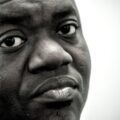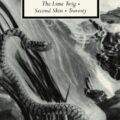Doctorow by Half

All the Time in the World
by E.L. Doctorow
Softcover, $16.00
Random House, 2012
Early in All the Time in the World, his third collection of short stories, E.L. Doctorow raises the surprising suggestion that the book might not be worth reading from cover to cover. The suggestion isn’t explicit, of course, but it emerges, unmistakably, in the space between Doctorow’s preface and his table of contents. Doctorow has long been one of America’s most celebrated novelists, with a slew of modern classics to his name. He exploded onto the literary scene with his debut, Welcome to Hard Times (1960), a loosely metafictional account of the birth of civilization on the American frontier, then published a string of acclaimed and similarly postmodern historical novels including — most notably — The Book of Daniel (1971), Ragtime (1975), and Billy Bathgate (1989). However, when he admits in his preface to All the Time in the World that he enjoys writing short stories because they offer “the quick return of an aesthetic investment,” he unwisely (if unwittingly) characterizes his stories as less considered and less deserving of time and effort than the novels that have earned him his reputation.
He reinforces this characterization with a strange selection of work. Of the twelve stories in All the Time in the World, three appeared previously in Doctorow’s first collection, Lives of the Poets (1984), and three more appeared in his follow-up, Sweet Land Stories (2004). Only four of the remaining six are new — written between 2008 and 2010 — while one first published in 1968 is republished here for the first time, and one written in 1997 was rewritten as the novel City of God (2000). What are readers to make of a collection of stories by a novelist who regards the short story as a lesser form than the novel, who cannibalized one of the stories here for later use in a novel, and who chooses to represent his short story skills with eight of twelve stories more than a decade old?
“These are wide-ranging pieces,” writes Doctorow, “set all over America from New York City to suburbia, to the South and Midwest and far West,” although, as he points out, they are united by a common focus on characters who are somehow “distinct from their surroundings [and] in some sort of contest with the prevailing world.” This won’t come as a surprise to anyone who has read the novels that Doctorow populates with characters engaged in that very same contest: the anarchists executed for treason in The Book of Daniel, for instance, or the underclasses coerced into crime by the Great Depression in Billy Bathgate. What is surprising, though, is how consistently — and even ruthlessly — the smaller scale of the short story diminishes their intensity. Whereas Doctorow’s novels enjoy the luxury of gradually bringing their protagonists to the realization that the deck is stacked against them, that they have been victimized by the false promise of the American Dream, his stories are too constrained and stunted to do likewise, leaving “the prevailing world” to shock his characters in fits and starts rather than slowly, agonizingly, turning up the heat. The men and women of All the Time in the World are forced to adjust their lives to either a sudden and inexplicable absence or an abrupt intrusion: something is missing from its proper place, or someone arrives from elsewhere and will not return to where they belong.
In the opening story, “Wakefield,” a man leaves his wife without warning and then moves into her attic to study her from a distance as she struggles with the grief of being abandoned. The story takes both its title and its premise from one of the most famous pieces in Nathaniel Hawthorne’s Twice-Told Tales (1837). Unfortunately, throwing the husband and wife into a contemporary setting, Doctorow allows Hawthorne’s tight, oblique, and disquieting narrative fragment to bloat out into thirty-five pages of limp psychological drama. Most of the stories that follow “Wakefield” are just as inspired in their conception and just as uninspired in their execution.
In “Assimilation,” an impoverished young man accepts payment for marrying a Russian woman he has never met, then finds himself falling for her after helping her immigrate to America. “Heist,” the story that became City of God, follows a minister who discovers that a crucifix has been stolen from his church and used to vandalize a synagogue — possibly by anti-Semites, possibly by conservative Jews. The most subtle story, “The Writer in the Family,” charts a dying man’s winsome reflections on the loss of his father when he was a boy. Less so are “The House on the Plains,” in which a mother and son in the remote American West rob and murder their visitors but fail to avoid suspicion when they dispose of the bodies, and “Walter John Harmon,” in which a Jim Jones-style cult leader elopes with the wife of an adoring acolyte and leaves the acolyte to rationalize his leader’s right to elope with any woman he pleases. “Willi” depicts a young boy’s collision with a very adult world, while “The Hunter” finds a young woman’s quiet existence upended by her attraction to a stranger in her small town. Rounding out the collection is the title story in which a Mongolian immigrant in New York gives up trying to penetrate American culture as he prefers to stand outside it looking in.
Despite the stylistic verve of Doctorow’s famously snappy, streetwise prose, the stories are half-baked and half-hearted, rarely developing any complexity from the dramatic tension of their opening pages. If All the Time in the World is worth reading at all, then, it’s worth reading less for the virtues of the stories it contains than for its capacity to underscore exactly what makes Doctorow’s novels so spectacular. The short story form, defined by brevity and compression, is inimical to Doctorow’s sprawling imagination and freewheeling sensibilities. In his novels, he takes a high-concept premise and teases out its implications in painstaking detail over hundreds of pages, relishing the slow burn and the piecemeal disclosure of something insidious. In his stories, though, his high-concept premises are shoehorned into a literary form that doesn’t allow the same indulgence in digression and detail. The reach of their narrative premises exceeds the grasp of their literary form, and so they burn out in an instant, a flash in the pan, left unremarkable because they are implausible, and implausible because they are underdeveloped.
Thankfully, while that’s true of the nine stories outlined above, the remaining three stories in All the Time in the World are outstanding exceptions to the rule. In “Edgemont Drive,” an old man revisits his former house and befriends the couple who live there now, then dies on the premises and leaves the couple troubled by their memories of him, as if haunted by his ghost. What makes the story work is that it consists entirely of the couple’s dialogue, allowing the younger man and woman to rise from the page as disembodied as the man they discuss. In “Liner Notes,” written in 1968, a Dylan-esque folk musician discusses the love of his life and the influence she held over his songs. It’s innovative because, as the title suggests, it takes the form of liner notes to a dozen songs so that, rather than recalling his relationship with his lover, the narrator recalls how their relationship gave shape to the words of the songs that made him famous.
Better than these stories, however, is “Jolene: A Life,” the only story that forgoes a bold, high-concept first page in favor of a more drawn-out and mesmerizing approach to a crescendo. “Friends tell Jolene she could act in movies,” Doctorow writes. “They like her voice that she has courtesy of her ex-husband, the way it cracks like Janis Joplin’s. And her crooked smile, which she doesn’t tell them is the result of a busted cheekbone.” Chronicling Jolene’s efforts to reclaim her dignity after mistreatment at the hands of three husbands, the story’s narrative voice exhibits the strength and resilience to which Jolene herself can only aspire, and refuses to offer her any sympathy or pity as if to encourage her to summon enough strength to stand on her own two feet. “Jolene” was adapted for the cinema a few years ago, but the film version doesn’t contain anything close to the power of Doctorow’s story because it doesn’t, and can’t, replicate that voice or the delicate tension Doctorow strikes between the characteristics of that voice and the characteristics of the woman whose story it tells.
Still, since three superb stories can’t redeem a three-quarters mediocre collection, All the Time in the World lives up to the awkward suggestion implicit in its opening pages. Doctorow can do better than this, and has done better in the past, which means that this collection is unlikely to satisfy his fans and just as unlikely to compel new readers to read further to see the amazing things he’s capable of. Those three stories offer a glimmer of the formal pyrotechnics that have made him famous, but mostly the form of the short story is too confined for him to dedicate his talents to the development of a narrative with his usual elaboration and intensity. His real achievements remain elsewhere — beyond these short stories, and beyond the short story itself.
About Daniel Wood
Daniel Wood is a graduate student, tutor, and lecturer at the University of Melbourne, Australia, where he researches and teaches American literature.





